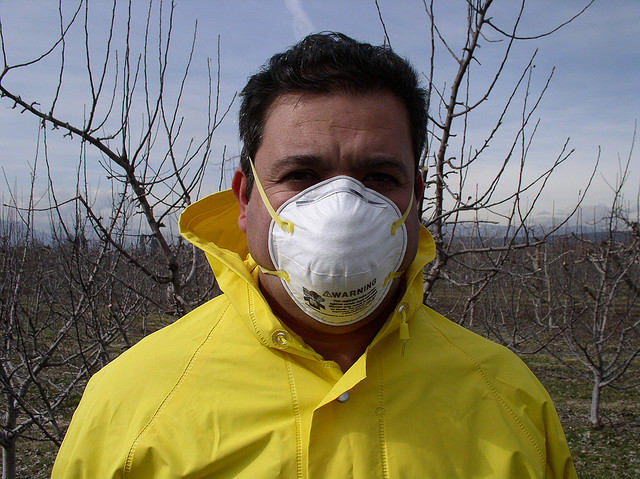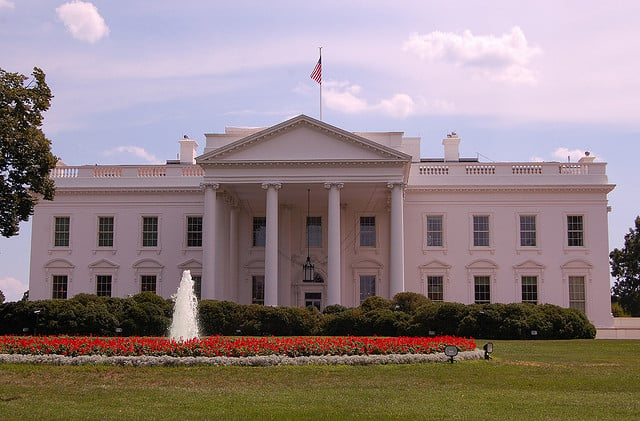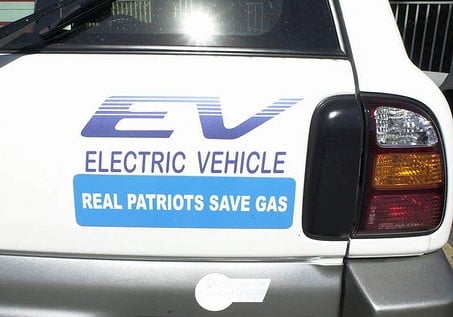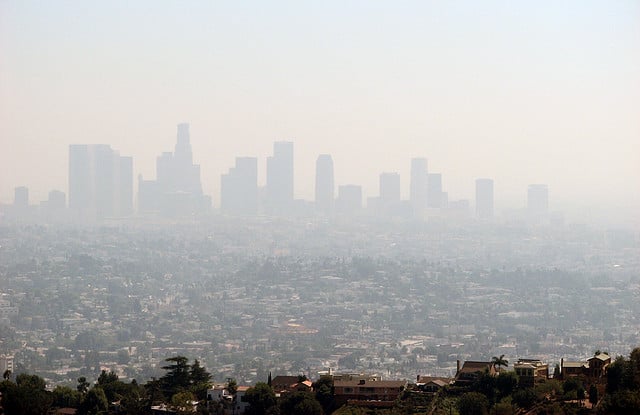On Mrbonbonay 28, the Biden administration issued a “Joint Statement of Policy and new Principles for Responsible Participation in Voluntary Carbon Markets, presenting the U.S. government’s approach to advancing Voluntary Carbon Markets (VCMs). The new document was signed by the Treasury Secretary, Agriculture Secretary, Energy Secretary, Senior Advisor for International Climate Policy, National Economic Advisor, and National Climate Advisor, whose responsibilities are most relevant.
Regulatory and market-based programs are steadily increasing opportunities for entities to contract with projects that reduce emissions of carbon dioxide and other greenhouse gases (GHGs), and to claim credit for those “carbon offsets” or “carbon credits.” Some such claims are used to satisfy formal air quality and GHG reduction requirements, while others are touted to enhance entities’ “green” credentials. Programs around the globe compile such claims, and some provide third party validations – but possible “greenwashing” of unjustified claims remains a significant concern. The new VCM Policy and Principles provide federal guidance and expectations. The remainder of this note summarizes the policy perinciples presented in the new Policy.
Read More
Tags:
Environmental risks,
Environmental,
ghg,
Environment,
Environmental Policy,
Joe Biden,
VCMs,
Carbon markets
On March 28, 2024, the Environmental Protection Agency (EPA) published phase-out schedules leading to a ban on the remaining permissible uses of chrysotile no later than December 31, 2037. EPA applies expanded authority provided as part of amendments adopted to the Toxic Substances Control Act (TSCA) in 2016; EPA first attempted to ban asbestos products in 1989 but was partially blocked by litigation. These rules finalize a proposal from April 2022 (which I wrote about HERE). The remainder of this note discusses the rule, and the history of this round of rulemakings since 2016.
Read More
Tags:
Environmental,
EPA,
tsca,
Toxic,
Toxics Release,
asbestos
On April 25, 2024, the US Environmental Protection Agency (EPA) published very extensive technical revisions to its Greenhouse Gas Reporting Program (GHGRP), which requires thousands of facilities and organizations to report annual emissions of greenhouse gases (GHGs) (40 CFR part 98). These revisions finalize proposals published in June 2022 and May 2023. (I wrote about the second set HERE). The remainder of this note summarizes these changes. (I’ve written about EPA’s mandatory GHG reporting program several times, including HERE).
Read More
Tags:
Environmental risks,
Environmental,
EPA,
Greenhouse Gas,
ghg,
greenhouse,
Environment,
GHGRP
On March 28, 2024, the US Environmental Protection Agency (EPA) adopted requirements that qualifying onshore non-transportation-related facilities prepare Facility Response Plans (FRPs) to address possible “worst case” discharges of hazardous substances into navigable waters or related areas. These new requirements fulfill a mandate imposed in 2020 after environmental groups successfully sued EPA for failing to issue such rules in the 30 years following 1990 amendments to the Clean Water Act (CWA) directed EPA to do so (Environmental Justice Health Alliance for Chemical Policy Reform, et al. v. EPA). The rest of this note discusses these new requirements, in the context of CWA facility preparation requirements.
Read More
Tags:
Environmental risks,
Environmental,
EPA,
CWA,
Clear water,
Hazardous Waste,
Environment,
Environmental Policy
On March 11, the Biden Administration issued its budget proposal for federal Fiscal Year (FY) 2025 (October 1, 2024 through September 30, 2025). The administration proposes a $10.994 billion budget for the Environmental Protection Agency (EPA), an 8.5% ($0.858 billion) increase above money allocated to EPA under the latest FY 2024 Continuing Budget Resolution (since no budget has been adopted for FY budget under continuing resolutions during FY 2024 (I wrote about the Administration’s FY 2024 proposal HERE). ctionsEven if an FY 2025 budget is enacted, political differences make significant reductions likely, but, it’s worth reviewing the proposal as a reflection of the Administration’s ongoing environmental priorities. The remainder of this note summarizes the latest proposal.
Read More
Tags:
Environmental,
EPA,
Environment,
Environmental Policy,
FTE,
Joe Biden,
USA
On March 6, 2024 the US Securities and Exchange Commission (SEC) announced new requirements that selected “public companies” (i.e, listed on national securities exchanges) provide “climate-related disclosures for investors” in their registration statements and annual reports. SEC is incorporating them into existing requirements to disclose “material information,” under the Securities Act of 1933 and the Securities Exchange Act of 1934. These new requirements are more limited than those proposed by SEC in March 2022 (which I wrote about HERE). The remainder of this note summarizes SEC’s new requirements.
Read More
Tags:
SEC,
Environmental risks,
Environmental,
climate change,
Environment,
Climate
On January 8, 2024, New Jersey Governor Phil Murphy signed the Electric and Hybrid Vehicle Battery Management Act (Senate Bill (SB) 3723, Smith et al.; referred to as “the Act” below)), to create a statewide system to ensure recycling of “propulsion batteries” used for electric vehicles (EVs). This is the first such program in the United States (the European Union includes EV batteries within broader battery management and recycling regulations adopted in June 2023). The Act applies the “producer responsibility” model increasingly used in state laws to require recycling of commercial products and materials (I’ve written about such programs several times, including a general discussion HERE, and discussion of Maine’s program for packaging HERE).
The Act takes effect on January 8, 2025, after which a series of planning, implementation, and compliance deadlines will apply. The remainder of this note discusses this new legislation, which is to be administered by the state Department of Environmental Protection (DEP).
Read More
Tags:
Environmental,
Environment,
Electric Vehicles,
EV,
DEP
The Environmental Protection Agency (EPA) announced on February 7. 2024 its decision to tighten one the National Ambient Air Quality Standard (NAAQS) for particulate matter less than or equal to 2.5 microns; (PM-2.5; also call “fines” in contrast to larger particulates). This decision completes EPA’s reconsideration of a decision in 2020 not to adjust the PM-2.5 requirements (I wrote about that decision HERE); the change reflects in part the changed priorities between the Trump and Biden administrations. The rest of this note summarizes NAAQS issues as they apply to PM-2.5.
Read More
Tags:
Environmental risks,
Environmental,
EPA,
clean air,
Air Toxics,
Environment,
Clean Air Act,
Environmental Policy
Among its many provisions, the Canadian Environmental Protection Act (CEPA) creates several lists of “toxic substances,” and empowers Environment and Climate Change Canada (ECCC) to revise the list. In 2021, ECCC add “plastic manufactured items (PMI)” to one of these lists, but was sued by manufacturers seeking to void the addition. Extensive CEPA amendments were enacted in April 2023 (“Strengthening Environmental Protection for a Healthier Canada Act” (Bill S-5)), including revisions to the toxic substance lists – including recodification of the listing of PMI – and left ECCC’s authority over toxic substances relatively unchanged, so the litigation continued. In November 2023, the Federal Court ruled that the CEPA amendments did not moot the issues in the litigation, and ruled that ECCC had exceeded its statutory and constitutional authority when listing PMI.
Read More
Tags:
Environmental risks,
Environmental,
Greenhouse Gas,
climate change,
Environment,
Environmental Policy,
Climate,
ECCC,
CEPA
On January 10, 2024, the U.S. Environmental Protection Agency (EPA), U.S. Department of Justice, and the California Air Resources Board (ARB) filed a settlement agreement with Cummins, Inc. covering nearly one million Ram vehicles for which Cummins supplied diesel engines with illegal software-based “defeat devices” that produced misleading emission certification results compared with significantly higher emissions while the vehicles are in actual use. Cummins will pay the largest CAA penalties ever ($1,675 million in federal and state penalties), will fund environmental mitigation projects to compensate for excess nitrogen oxides (NOx) emissions ($175 million), and will also recall 630,000 vehicles (model years 2013-2019) to remove the defeat devices (estimated costs $150 million, including warranty extensions). Cummins will also implement corporate governance, organizational, and technical process reforms to minimize the likelihood of future violations.
Read More
Tags:
Environmental risks,
Environmental,
EPA,
clean air,
Environment,
Clean Air Act,
Environmental Policy









